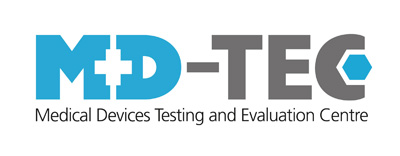Medical technologies discovery and optimisation for clinical development
Workshop facilitator(s): Dr Anthony Metcalfe & Dr Richard Williams
Developing a new device from an original concept at the laboratory bench through to the launch of a finished clinical product is a complicated process which can take many years and be very costly. The idea for a device application for the treatment of a medical issue can come from a variety of sources including academic and clinical research, and from industry. It can take many years to build up a body of supporting mechanistic, physical and pre-clinical evidence before selecting the finalised device technology for use in the clinic. Industrial companies, and more recently, some academic groups are identifying ways of streamlining a number of early processes to identify and test devices which possess suitable characteristics for use as medical treatments.
This workshop will give a holistic overview of key aspects of developing drug products and medical devices, including: building a network to triage and nurture ideas; the regulatory pathway; establishing safety; manufacturing at scale to clinical grade; and defining relevant measures of clinical success in trials. Critically, the talk will highlight how considering the abovementioned aspects early on through relatively simple lab experiments and engagement with relevant regulatory bodies can help companies and academics innovate and get to market faster, at reduced cost and with less risk. Finally, an overview of some of the commercial considerations of medical device development will be considered.
Device testing using organotypic culture systems
Workshop facilitator(s): Dr Alexandra Iordachescu
In vitro testing is currently used as a first-stage method for assessing the toxicity and compatibility of drugs and implants and can avoid the unnecessary use of animals in the testing of incompatible materials and compounds. Whilst this method is the most suitable for standardization and quantification, there are numerous problems in terms of understanding the cellular response, often referred to as ‘biocompatibility’, which is often incorrect, as what is recorded is the behaviour of individual cells, not organized into complex tissues, and as such, these tests cannot always demonstrate whole-tissue response to drugs, biomaterials and implants. Secondly, the response of isolated cells to these compounds can be much greater than in vivo, meaning that the effects can be overestimated and that the investigations are limited to the acute, short-term effects of these compounds.
The University of Birmingham in collaboration with partner Institutions have recently developed organotypic models of musculoskeletal tissues which will be discussed at this workshop. These platforms have the advantages of in vitro systems in terms of reproducibility, and adaptability, but with a biological complexity more similar to native tissues, displaying promise for use in many research areas, from bone replacement materials to pathological research.
Workshop facilitator(s): Dr Tom Clutton-Brock & Dr Sinziana Popescu
Every year over 11,000 people die in hospitals in England due to medical errors, many of which are due to incorrect medical device utilisation by the human operator(s). The need for more effective human factors engineering (HFE) in healthcare has been echoed with moves from the Food and Drug Administration (FDA) and Europe to encourage medical device companies to implement usability studies as part of the product development cycle.
This workshop will provide you with an overview of human factors engineering (HFE) for medical devices, involving more than just the ergonomics aspects. By performing usability studies, the manufacturer can assure design safety and its suitability for lay users, healthcare professionals or patients. By the end of this workshop, you will be able to distinguish between different types of usability tests and understand their integration in the product development cycle.
Clinical Investigations for Medical Devices
Workshop facilitator(s): Dr Gillian McNab
Following the revision of the Medical Device Regulations (MDR) published in May 2017, there has been an introduction of strict rules for clinical investigations (trials) of medical devices and an alignment to the clinical trial regulation for investigational medicinal products.
This workshop will allow you to have a detailed look at which medical devices need a clinical investigation, how to apply for regulatory body approval, what a medical device trial entails and the costs involved. As such, you will gain an understanding of the requirements the new MDR poses for clinical investigations of medical devices and how this will affect your company.
Navigating the MDR (Medical Device Regulations)
Workshop facilitator(s): Dr Azad Hussain
Medical devices and in vitro diagnostic medical devices are becoming increasingly sophisticated and complex. The introduction of the new regulations are the latest evolution and update of the regulations that have the roots in the 1990s, and is an attempt at keeping pace with developments in the healthcare sector.
The MDR (Medical Device Directive) and IVDR is a set regulation aimed specifically at this sector and introduces a framework by which safe medical devices can be introduced onto the European market. The aim of the workshop is to show you a way of navigating the regulations and the CE marking process, helping you to translate your idea to a medical device. For further details then please use our contact form

